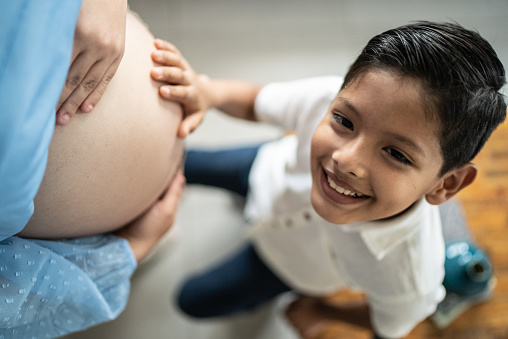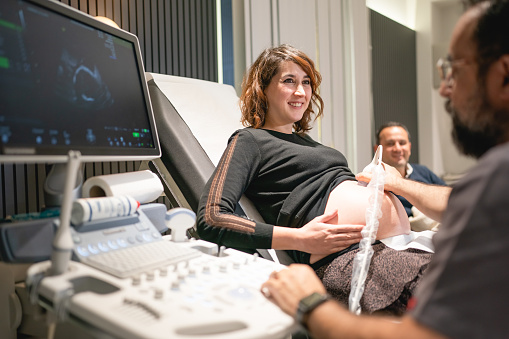
Exploring the Benefits of Fertility In 2023? Fertility plays a significant role in many people’s lives, and advancements in reproductive medicine continue to offer new possibilities. In 2023, the field of fertility has witnessed remarkable progress, providing individuals and couples with various benefits and options, highlighting advancements in treatments, personalized care, holistic approaches, emotional support, genetic testing, fertility preservation, education, and lifestyle factors.
Advanced Fertility Treatments

In 2023, advancements in fertility treatments have revolutionized the field, offering increased success rates and expanded options. Assisted reproductive technologies (ART), such as in vitro fertilization (IVF), have become more refined and accessible. Additionally, innovative techniques like preimplantation genetic testing (PGT) and time-lapse imaging improve embryo selection, enhancing the chances of a successful pregnancy.
Personalized Fertility Care
Personalized fertility care has become a cornerstone of treatment in 2023. Fertility specialists assess each individual or couple’s unique needs, tailoring treatment plans accordingly. Personalized care ensures that fertility treatments are optimized for success, taking into account factors such as age, medical history, and specific fertility challenges.
Read More: 10 Ideas FBI Program tasked Infrastructure Security In 2023
Holistic Approaches to Fertility
Holistic approaches to fertility are gaining recognition and popularity in 2023. Integrative therapies, including acupuncture, nutritional counseling, stress reduction techniques, and lifestyle modifications, are often incorporated into fertility treatment plans. These holistic approaches address the physical, emotional, and mental aspects of fertility, promoting overall well-being and enhancing the chances of conception.
Fertility Preservation

Fertility preservation has become an important option for individuals and couples in 2023. Techniques such as egg freezing and sperm freezing allow people to preserve their reproductive cells for future use. This offers hope for those who wish to delay starting a family due to personal or medical reasons, including career aspirations, medical treatments, or age-related fertility decline.
Emotional Support and Mental Health
Recognizing the emotional challenges associated with fertility struggles, comprehensive care in 2023 includes emotional support and mental health services. Fertility clinics provide counseling services, support groups, and resources to help individuals and couples navigate the emotional ups and downs of the fertility journey. This holistic approach addresses the emotional well-being of patients and promotes resilience throughout the process.
Genetic Testing and Screening
Genetic testing and screening have become integral components of fertility care in 2023. Preconception genetic testing helps identify genetic disorders or chromosomal abnormalities that may affect the chances of conception or the health of the future child. Genetic screening allows individuals and couples to make informed decisions about their reproductive options, including the selection of embryos with lower genetic risks. These advancements contribute to increased success rates and healthier outcomes for individuals undergoing fertility treatments.
Fertility Education and Awareness

In 2023, there is a growing emphasis on fertility education and awareness. Fertility clinics and organizations strive to educate the public about reproductive health, fertility preservation options, and the factors that can impact fertility. By raising awareness and providing accurate information, individuals can make informed decisions about their reproductive choices and take proactive steps to optimize their fertility.
Lifestyle Factors and Fertility

Lifestyle factors play a crucial role in fertility, and in 2023, there is increased recognition of their impact. Fertility specialists emphasize the importance of a healthy lifestyle that includes regular exercise, a balanced diet, adequate sleep, stress management, and avoiding harmful habits such as smoking and excessive alcohol consumption. These lifestyle modifications can improve fertility outcomes and overall reproductive health.
Conclusion
The benefits of fertility in 2023 are extensive and offer hope and possibilities to individuals and couples desiring to start or expand their families. Advanced fertility treatments, personalized care, holistic approaches, fertility preservation, emotional support, genetic testing, fertility education, and lifestyle factors all contribute to improved outcomes and enhanced overall well-being. As reproductive medicine continues to advance, it is important for individuals to stay informed, seek professional guidance, and take proactive steps to optimize their fertility journey.
FAQs
At what age does fertility decline?
Fertility decline can vary among individuals, but generally, a woman’s fertility starts to decline significantly after the age of 35. Men also experience a gradual decline in fertility as they age.
What are some common fertility treatments?
Common fertility treatments include in vitro fertilization (IVF), intrauterine insemination (IUI), fertility medications, and surgical interventions to correct reproductive issues.
Can fertility be improved naturally?
While fertility treatments can assist individuals and couples, certain lifestyle factors can improve fertility naturally. Maintaining a healthy weight, adopting a balanced diet, managing stress, and avoiding smoking and excessive alcohol consumption can positively impact fertility.
Is fertility preservation only for women?
No, fertility preservation is relevant to both women and men. Women can freeze their eggs, while men can freeze their sperm for future use. This provides reproductive options in cases where fertility may be compromised due to various circumstances.
How can emotional support benefit fertility treatment?
Emotional support is vital during fertility treatment as it helps individuals and couples cope with the emotional challenges that often accompany the fertility journey. Counseling, support groups, and therapy can provide a safe space for expression, guidance, and resilience-building.











